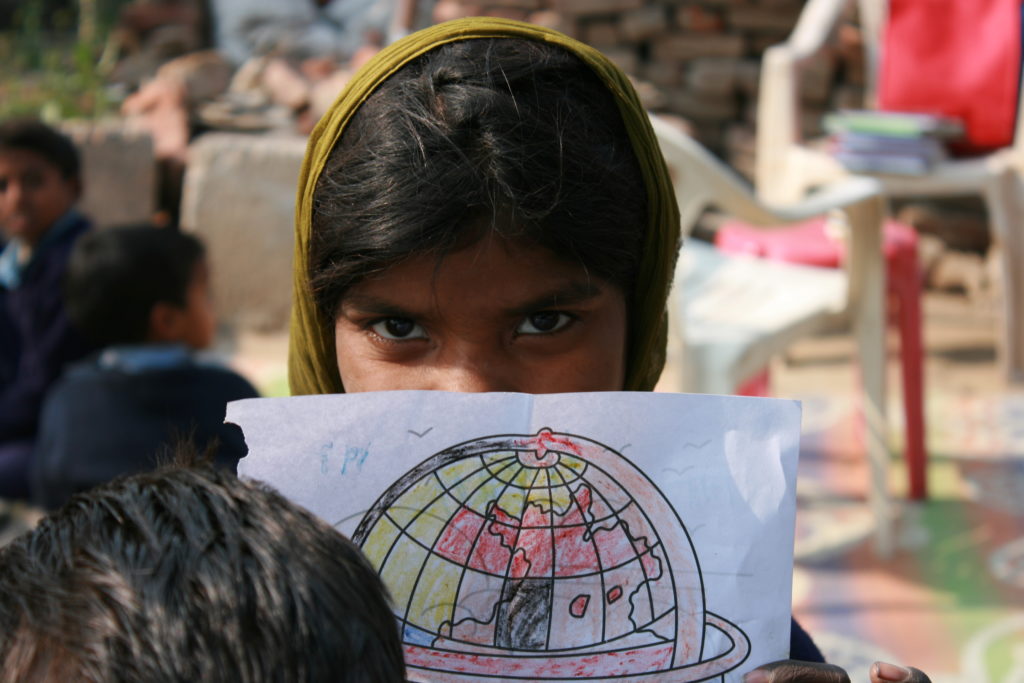
World Faith Counters Violence and Poverty Though Interfaith Engagement
By AdministratorWorld Faith, our Challenge the Gap beneficiary during July, August, and September 2015, endeavors to disincentive violence. How? By countering cultural narratives that explicitly or implicitly create divisions and animosity between diverse groups. By encouraging humanization through volunteering together to work on shared community concerns—rather than traditional interfaith dialogue—and addressing the underlying economic issues that make violence possible. World Faith chapters are community lead and community designed, responding to specifically local obstacles. This model means individual projects can look very different. Some chapters are working on women's education, others are working on public health, while another group is focused on access to food. But since all programs follow the Sustainable Livelihoods Approach, all programs are designed to address any issue to create sustainable systems that simultaneously work on poverty elimination.
World Faith has identified three crucial issues to fund: women’s empowerment, children’s education, and public health. For example, one of the Rainbow Schools in New Delhi serves a slum community that has no running water and lives with the constant threat of demolition at a moment’s notice. The school is working on creating a meal program to incentivize parents to send their kids to school rather than to work. The one classroom that is covered serves as a homeless shelter at night. The other classroom is a collection of mats in a clearing. Over 180 children are taught by two teachers who must teach many ages and education levels. The first Rainbow School opened with 17 students. Now three Rainbow Schools have a combined student body of over 300.
A chapter in Nairobi manages a community farm of 100 women, many of whom were victims of sexual exploitation. The women are now self-sustaining and even loan money to the surrounding community. In Indonesia, after the fall of the Suharto regime, a women’s school was founded. Underprivileged women are empowered by learning basic writing, reading, arithmetic, and small-business management skills. The school is also a public face by and for women leading anti-violence demonstrations and meetings with several participants having run for public office.
In Gambia, the chapter established the Mango Tree Nursery School to provide early childhood education to orphans, children of refugees, and children in need in Jiboroh Koto. In 2012, over 80% successfully passed their primary school entrance examinations and transferred to a nearby primary school. In 2014, the chapter successfully restored a pump at the school that provides clean water to the school and the larger community. Before the restoration, Jiboroh Koto had seen a large rise in the number of preventable, water-borne diseases. Building on the pump success, the chapter launched a campaign to create a separate drinking area for cattle. They also started a farm at the school that will help the school become self-sustainable by raising the money to pay teacher's salaries.
World Faith’s approaches to concrete problems are community driven and aim to be self-sustainable. Their approach to the more abstract problem of religious intolerance is innovative. Whatever specific issue a chapter is addressing, they are all peacebuilding through their interfaith commitment. In any local chapter, the goal is for their volunteers to meet a “minority majority” faith demographic, which means a goal that the largest faith group represented among volunteers at every individual chapter adds up less to than 50% of their total demographic. The very goal of interfaith encounters is being challenged. These are not interfaith dialogues, but interfaith actions. Interfaith work means empowering youth from religiously divided communities to rise above their differences to work together on crucial development issues. Changing the system of peacebuilding is as much World Faith’s goal as working on peacebuilding itself. World Faith received a $8,940 grant from Foundation Beyond Belief and our generous regular giving members.
